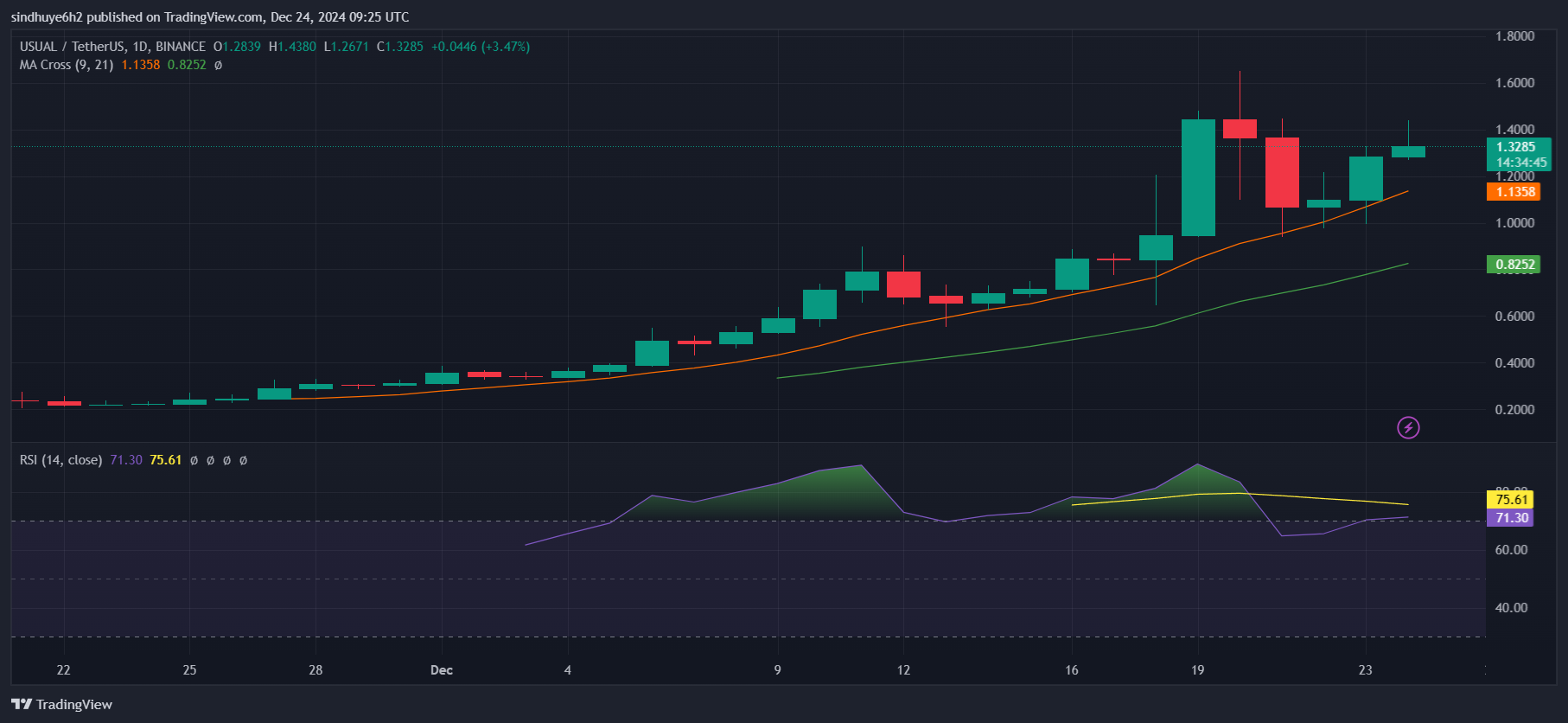- USUAL surged 25%, trading at $1.32 with a $624.74M market cap.
- Support lies at $1.20, resistance at $1.44, with potential to hit $1.60.
USUAL has seen a significant surge in the past day, climbing 25% and trading at $1.32 at the time of writing. Its market cap has grown by 22.58%, reaching $624.74 million. The 24-hour trading volume stands at an impressive $1.01 billion, showing an 88.76% increase.
The fully diluted valuation (FDV) is $5.27 billion, while the Market Cap ratio is a staggering 160.06%. With a total value locked (TVL) of $1.44 billion, the market cap ratio sits at 0.4331. This strong volume surge reflects heightened investor interest in the token. If the current bullish momentum holds, USUAL could maintain its upward trajectory.
Key Technical Indicators Point to Positive Trends
Analyzing the chart, USUAL’s price is above the moving averages (MAs). The 9-day MA is at $1.1358, and the 21-day MA is at $0.8252. This crossover signifies bullish momentum, as the short-term average has surpassed the longer-term one. If the price remains above the $1.20 support level, it could test the next resistance level of $1.44.

The Relative Strength Index (RSI) is 75.61, with the RSI average at 71.30. This places the token in the overbought zone, which often signals potential corrections. However, sustained volume increases could offset this and push the price higher.
If USUAL breaks the $1.44 resistance level, it could target $1.60 in the near term. Conversely, a break below $1.20 might bring the price down to the next support at $1.10.
The price action suggests bullishness, supported by rising volumes and positive MA crossovers. The overbought RSI indicates cautious optimism, as corrections may occur. Traders should watch the $1.20 support and $1.44 resistance levels closely.
Breaking through resistance could lead to new highs while failing to hold support might signal short-term weakness. The TVL ratio of 0.4331 highlights strong fundamentals, implying undervaluation relative to locked assets. Investors should consider both technical and fundamental metrics before making decisions.
 thenewscrypto.com
thenewscrypto.com
